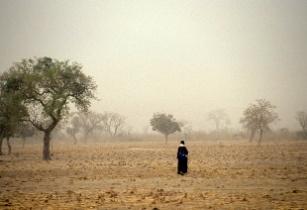The UN Information Centre (UNIC) Lagos, in collaboration with Nigerian Environmental Society (NES), has organised a dialogue on Sustainable Development Goal (SDG) 13: Take urgent action to combat climate change and its impact
Focused on the theme, “Combating Climate Change and Its Impact in Nigeria,” the dialogue session on 31 July 2018 was in continuation of UNIC Lagos monthly SDGs dialogue and attracted more than 100 environmentalists, climate change activists, private sector representatives, academia and other stakeholders.
In his lead paper, a senior research fellow at the Centre for Environmental Studies and Sustainable Development, Lagos State University, Dr Ahove Michael, advocated for the establishment of a ‘Climate Change Vision’ with timelines and high level of community buy-in; excellent climate change governance and behavioural change amongst the people.
“There is a need to disseminate from command to community to build indigenous community-based adaptation and mitigation knowledge that takes cultural dynamics into consideration,” he noted.
Dr Ahove highlighted some examples of climate change impact in Nigeria: desert encroachment and desertification, poor precipitation, drought, loss of soil fertility, poor vegetation, poor agricultural yield, food insecurity and inadequate food and water for live stocks. Others include illnesses and death of live stocks, irregular and sudden change in weather pattern, flooding of homes and other facilities, increased incidence of malaria and other diseases, loss and disruption of human activities, loss of goods and properties and loss of life.
Recalling the statement of the UN secretary general, António Guterres, that climate change is “the most systemic threat to humankind,” Desmond Majekodunmi, an environmentalist and Chairman of LUFASI Park, Lekki, urged individuals, corporate organisations and the Nigerian government to decarbonise by curbing greenhouse gas emissions and protecting the forests.
The Chairman of Nigerian Environmental Society (NES), Mainland Lagos branch, Dr Eugene Itua charged the participants to take responsibility and protect the mother earth and mankind through eco-friendly lifestyles.
Interventions and questions by the participants delved on environmental law and policies, phasing out of non-biodegradable packaging, adaptation and disaster risk reduction measures in areas prone to flash floods, responsible consumption, high cost of clean energy and the importance of environmental education in climate change discourse.





















